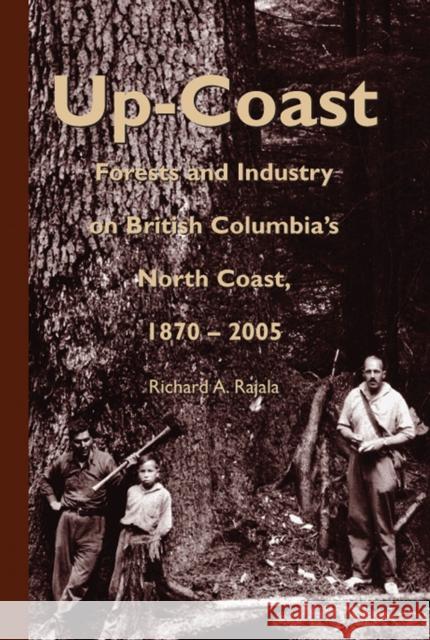Up-Coast: Forest and Industry on British Columbia's North Coast, 1870–2005 » książka
Up-Coast: Forest and Industry on British Columbia's North Coast, 1870–2005
ISBN-13: 9780772654601 / Angielski / Twarda / 2007 / 304 str.
Up-Coast: Forest and Industry on British Columbia's North Coast, 1870–2005
ISBN-13: 9780772654601 / Angielski / Twarda / 2007 / 304 str.
(netto: 105,45 VAT: 5%)
Najniższa cena z 30 dni: 110,72 zł
ok. 8-10 dni roboczych
Bez gwarancji dostawy przed świętami
Darmowa dostawa!
In Up-Coast, award-winning author Richard A. Rajala offers the first comprehensive history of the forest industry on British Columbia's central and north coast. He integrates social, political, and environmental themes to depict the relationship of coastal people and communities to the forest from the late 19th century to the present. The account begins with the emergence of a small-scale industry tied to the needs of salmon canneries and early settlements, and traces the development of a diverse structure involving sawmills, tie and pole producers, and hand loggers struggling to profit from participation in domestic and foreign markets. But from the early 20th century on, government policies favoured the interests of giant pulp-and-paper firms such as Pacific Mills at Ocean Falls. A turn to sustained-yield forestry after World War II promoted further concentration of ownership, a pattern that saw Columbia Cellulose capture the Skeena and Nass watersheds to meet the fibre needs of its troubled Prince Rupert pulp enterprise. At the same time, postwar development drew the region into a role as hinterland log extraction site for southern plants fed by enormous Tree Farm Licenses. Relating these themes to a tradition of activism against capitalist inequities, Up-Coast discusses First Nations, union and community protests against corporate exploitation of labour and resources. In addressing the modern era of land claims, environmentalism and capital-flight, Rajala turns to the complex and unresolved struggle for a more equitable and sustainable human relationship with British Columbia's forests.











